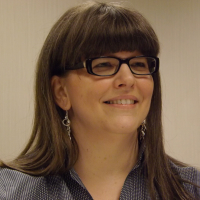I lived in Tel Aviv for 14 years, and having been back in America for almost as long, still miss it every day. At Passover, that longing becomes an almost physical weight in my chest.
The smells of springtime Chicago aren’t right, and neither is the culture. I want to be surrounded by people who know why I’m frantic in the lead-up to the Seder, bus drivers wishing me a hag sameah, and neighbors asking “where are you for the holiday?” I want to be home.

But I’m not home. Instead I’m in the gentle exile of American suburbia—a self-imposed, political exile that I undertook for the sake of my children.
When the second intifada broke out, my Jerusalemite husband and I were temporarily in the US as I worked toward my Masters degree at the University of Chicago. We assured everyone (over and over) that we would be back in Israel by the time our just-born son went to kindergarten—it would be easier, we figured, if he started school in the country where he’d be growing up.
But then the intifada ground on. And Israel responded with increasing violence, and a steadfast refusal to admit any culpability, or need to make good on past promises, or understanding that the Palestinians were reacting as we would, had we been occupied for decades on end.
For a year my husband and I wrestled with our fears, not even sharing them with each other—then one day, when home for a visit with our son, we began to talk, and realized: We didn’t want to raise children in that place. The Jewish State was no longer a place in which we wanted to build a family—“for the time being.”
In the meantime, “the time being” has become our lives. The boy was joined by a girl, birthdays have come and gone, and nothing about Israel in the past decade has convinced us that our Israeli children should leave the galut.
On the contrary: As Israel has become more deeply entrenched in the settlement enterprise, more dedicated to an increasingly violent and dehumanizing occupation, and indeed, increasingly less democratic toward even those with the good fortune to be Jewish, we’ve come to realize that we’re not likely to ever move back.
I don’t know if our children are any physically safer here than there, but I do know this: They’re not being groomed for service in a military now devoted less to the defense of the state, than to the oppression of another people. They’re not caught in an educational system made small and narrow by lack of funds, even as the government pours funds into settlements built illegally on stolen land. They’re not being lied to daily by leaders who mouth platitudes about peace, even as their actions do nothing but undermine the possibility of peace.
They think of Israel as home, too. We speak Hebrew in our house, are active members of our Conservative shul, and visit about once a year.
And when we’re there, between laughter on the beach and overnights on their cousins’ kibbutz, we teach them things they don’t learn about in Hebrew school: We show them road blocks, strewn across the West Bank. We gaze at the Separation Barrier snaking through Palestinian land, and ask how they would feel if soldiers came and threw them out of their home. We march in East Jerusalem.
And if I ever doubted the wisdom of our decision, a video emerged from Israeli television this week to wipe any doubts away: Asked for reactions to the recent traffic accident deaths of a group of Palestinian children, teenager after teenager responded with nauseating levels of animosity: “They’re whores, not people, and they don’t deserve to live,” one young man said. “They can be the future of terrorist attacks.” When the reporter pointed out that the dead were but 4 or 5 years old, the boy responded: “Little kids, so what?”
Lest we be tempted to think that these kids are simply bad apples – in 2010, nearly half of Israeli teens surveyed said they didn’t support equal rights for Israel’s Arab citizens. More than half would deny them the right to be elected to the Knesset.
A society that has become centered on protecting, maintaining and furthering the oppression of another people produces and indeed rewards hate. This is not unique to Israel or Israelis—it’s human.
But I will not raise the two humans who matter most to me in such an atmosphere. I will protect them from what Israel has become, and I will raise them to know the Jewish values of human dignity and the sanctity of life.
And every year at this time, my heart will ache as I say “Next year in Jerusalem.” Because I know that next year, I’ll be right here.






